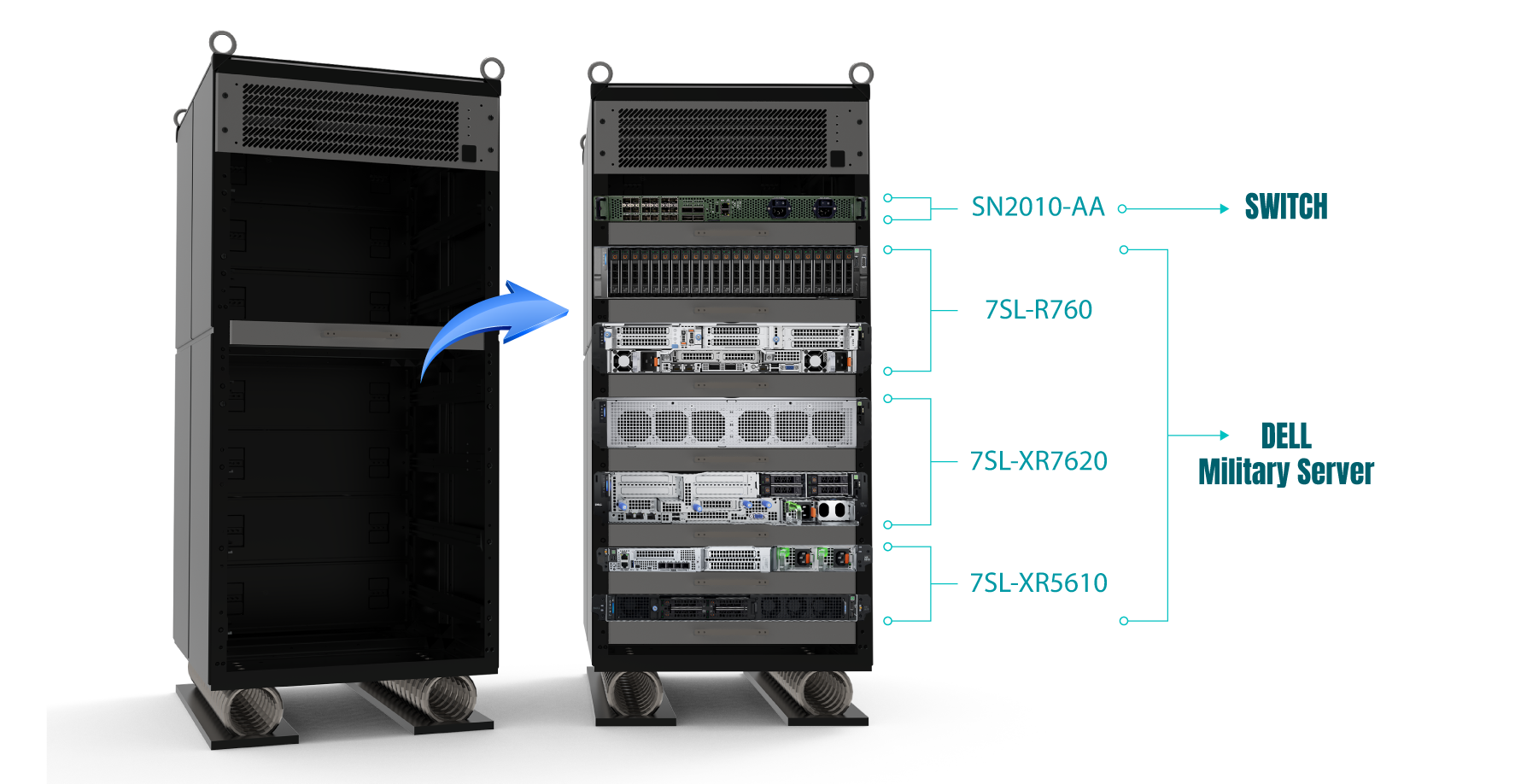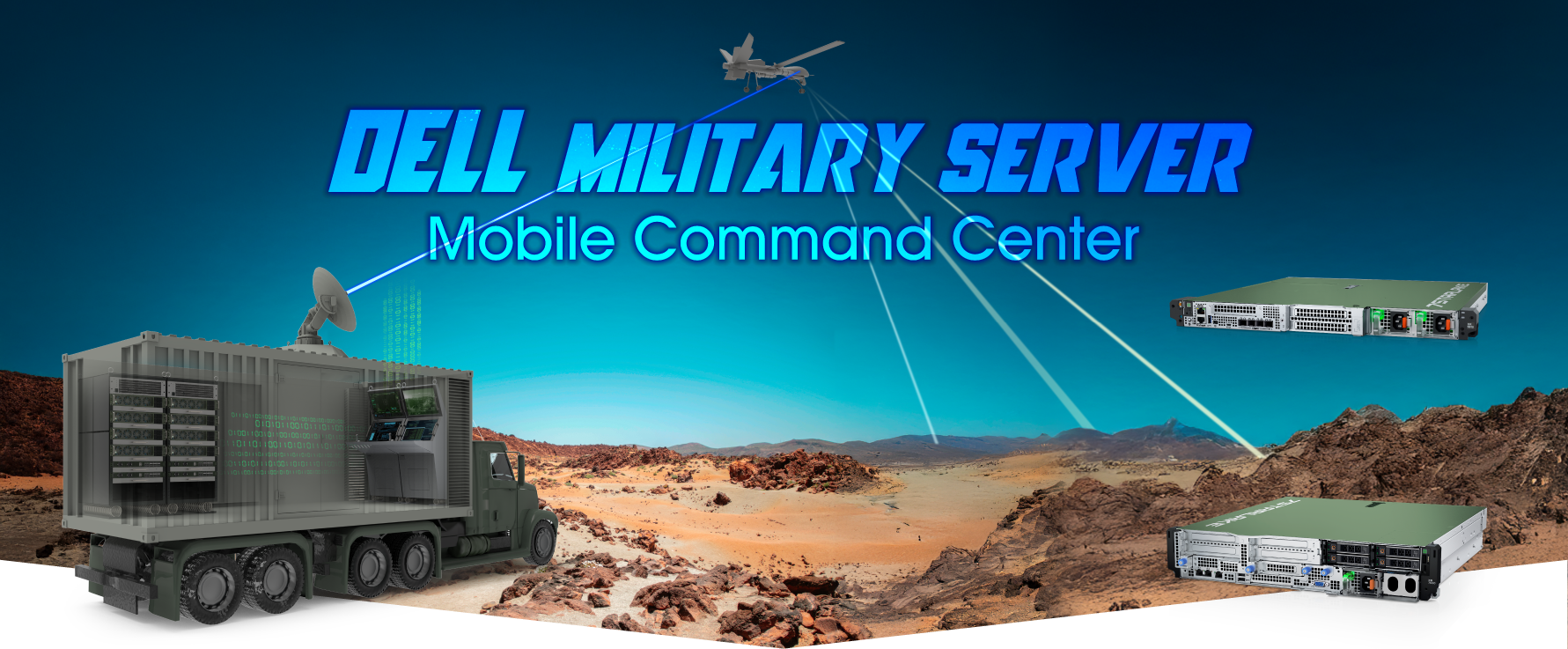
Importance of the Ground Control Station (GCS) for Large-Size UAVs
The Ground Control Station (GCS) is the operational hub for large-size unmanned aerial vehicles (UAVs), such as the MQ-9 Reaper. Its significance lies in its role as the central command point, enabling seamless remote operation and mission success.
The 7SL- XR5610 and 7SL-XR7620 servers, integrated into the 7StarLake Mobile Command Center, offer high-performance computing, rugged durability, advanced security, and superior thermal management. These features make them essential for defense, heavy duty, and edge computing applications in harsh environments.
The 7SL-XR7620 2U tactical server delivers unprecedented computing power in a ruggedized, deployment-ready platform specifically engineered for Military Mobile Command Centers. This system enables real-time battlefield analytics, multi-source intelligence processing, and secure command operations in forward-deployed environments. The 7SL-XR7620 host two dual-width, full-height GPUs or FPGAs with Intel® 4/5th Xeon® scalable processors in an unmatched rugged design, the 7SL-XR7620 delivers exceptional reliability and Tensor Core performance at the tactical edge. Designed to handle challenging, yet critical inference obstacles, the extreme, scalable compute power of the 7SL-XR7620 brings ultra-low latency and seamless operation to the most volatile, mission-critical conditions when real-time situational awareness and AI can’t be compromised
Key reasons for its importance include:
| |
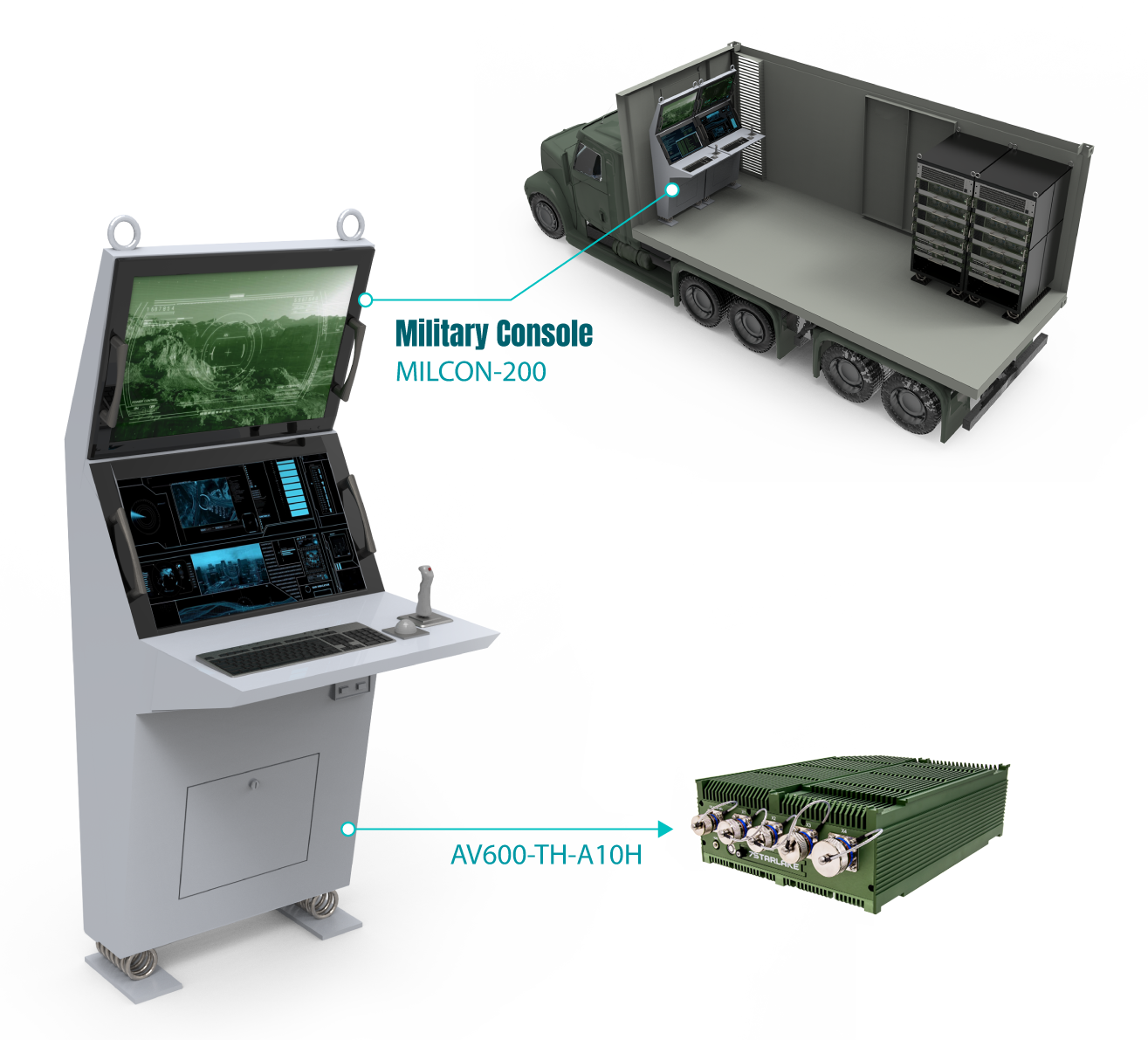
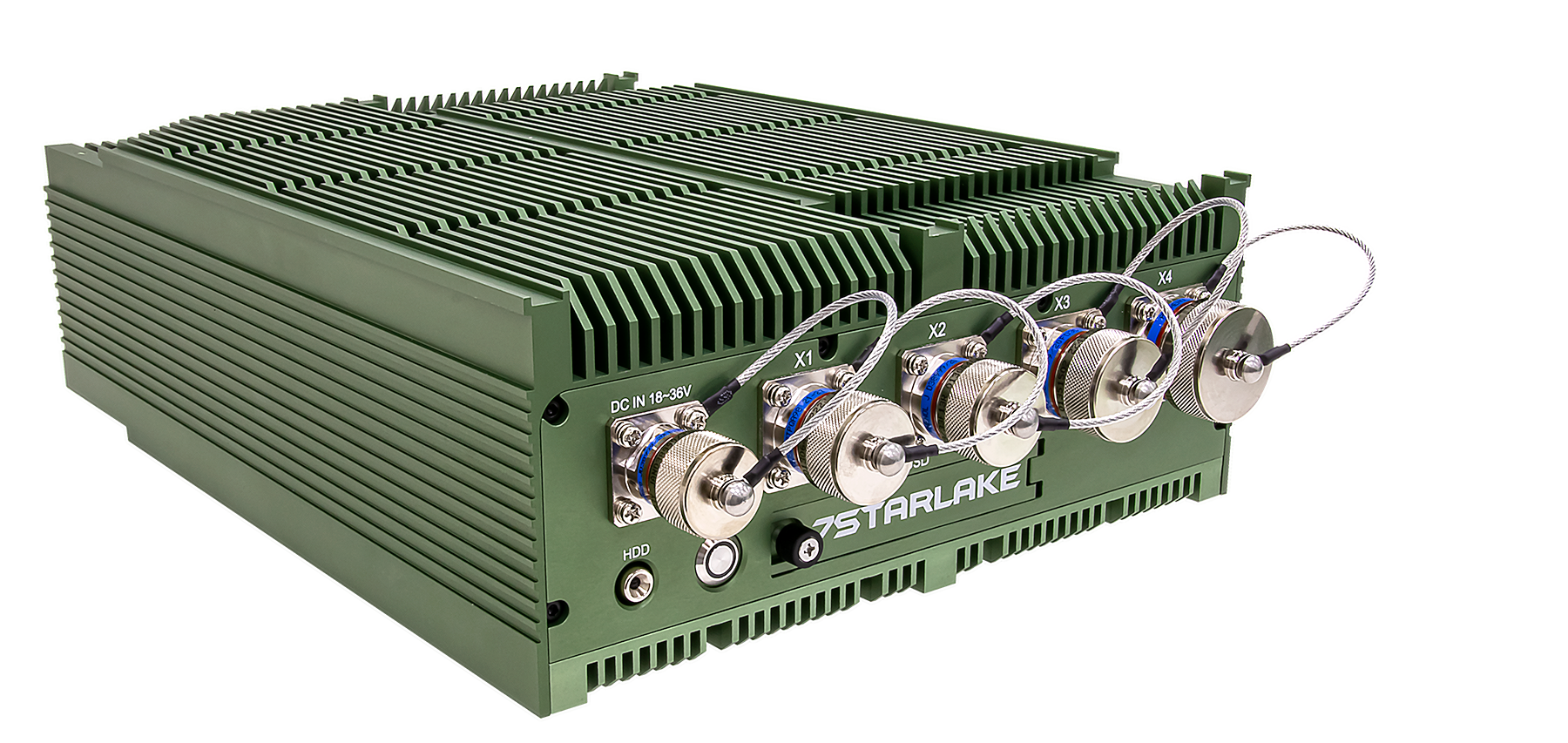
- MIL-STD 810 Anti Vibration, Shock
- IP66 Chassis with DTL38999 Connectors
- Intel® 11th Tiger Lake (H) Xeon® W-11865MLE CPU
- Up to 96 GB DDR4 RAM
- NVIDIA MXM A1000 GPU, 2048 CUDA®
- MIL-STD-461 18V~36V DC-Input
- Extreme Temperature : -40°C to +60°C
|
Flight Control and Navigation:
- Manages UAV flight operations, including takeoff, navigation, and landing.
- Provides real-time flight adjustments based on mission needs and environmental conditions.
Mission Management:
- Supports mission planning, execution, and updates.
- Enables dynamic mission adjustments based on live intelligence and changing objectives.
Sensor and Payload Operation:
- Controls UAV sensors for surveillance, reconnaissance, and target acquisition.
- Manages weapon deployment when required in combat missions.
Data Collection and Analysis:
- Receives, processes, and stores video feeds, telemetry data, and intelligence reports.
- Provides situational awareness and operational insights in real time.
Communication and Coordination:
- Facilitates secure communication with UAVs, command centers, and other units.
- Uses satellite and radio links to maintain connectivity in all mission phases.
Cyber security and Data Protection:
- Protects sensitive mission data through encryption and secure networks.
- Ensures mission continuity through redundant systems and data backups.
Operational Safety and Redundancy:
- Enhances operational safety through system monitoring and fault detection.
- Provides backup capabilities to prevent mission failures in case of hardware or software issues.
|
|
Dell Military Server
The 7SL-XR5610 and 7SL-XR7620 servers are engineered for mission-critical operations, providing high performance, rugged durability, advanced security, superior expansion capabilities, and optimized thermal performance. Their ability to function in harsh environments with efficient cooling and future-ready expansion makes them an essential part of the 7StarLake Mobile Command Center for defense, industrial, and AI-driven applications.
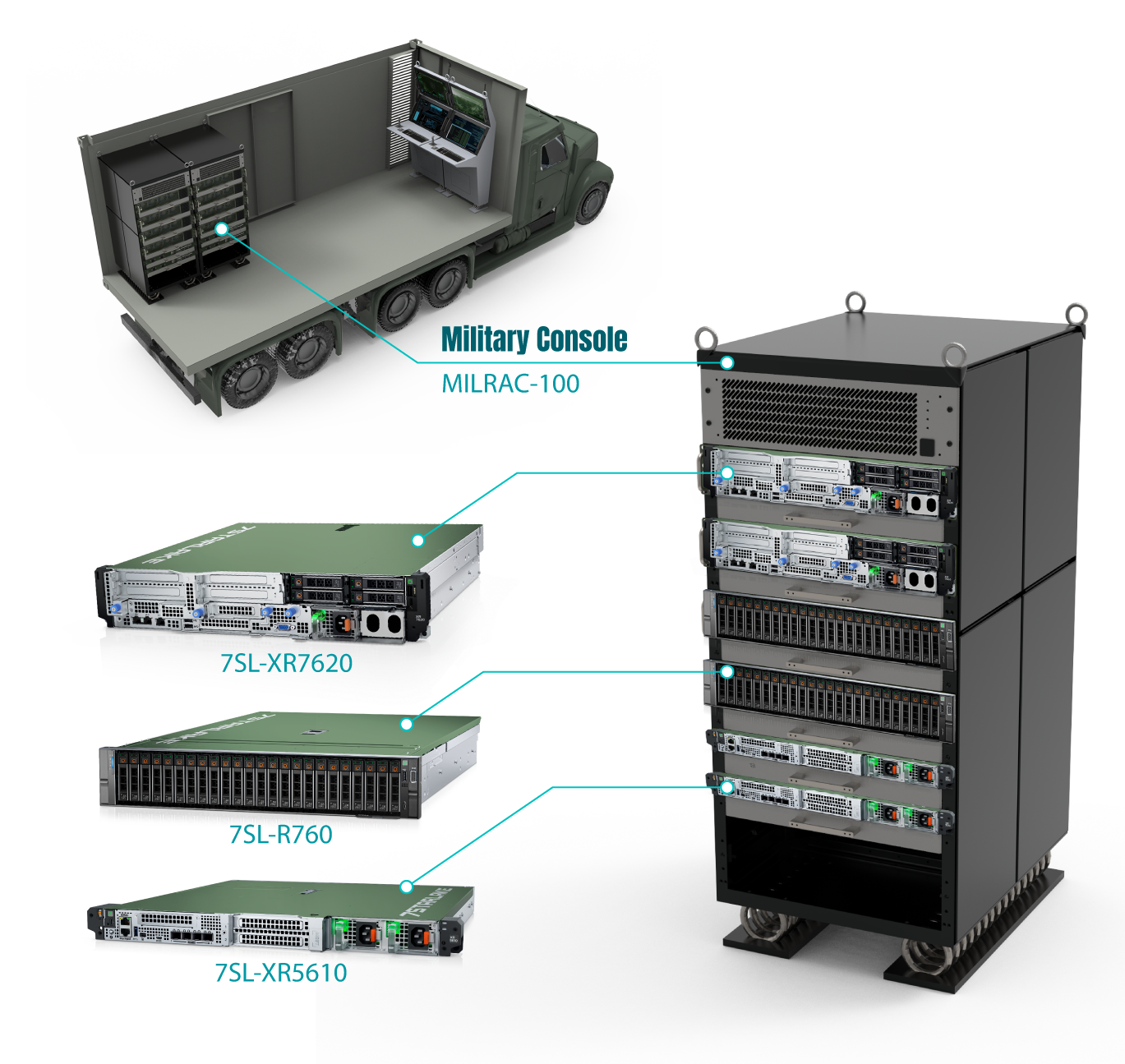 |
7SL-XR5610

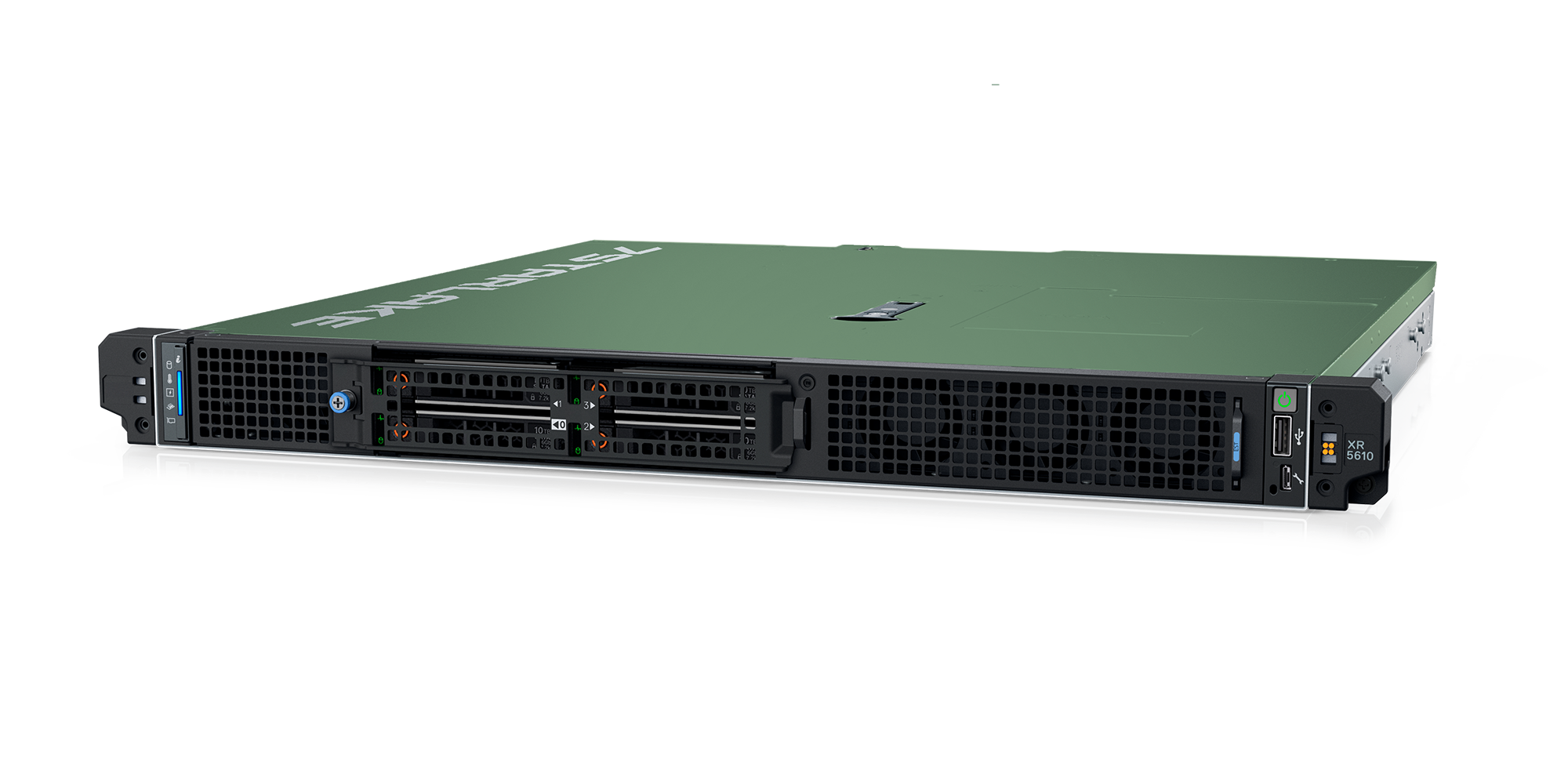
- Intel® 4/5th XEON® SP Processor Bronze, Silver, Gold
- Up to 2 x PCIe Gen5 low profile (two x16 PCIe Gen5)
- 4x 2.5” Swappable SATA SSD up to (RAID 0,1,5,10)
- 4x 25G GbE SFP+, 1 x iDRAC Direct (Micro-AB USB 2.0), 1 x iDRAC dedicated, 1 x USB 3.0, 1 x Serial (Micro-AB USB2.0) port, 1 x Mini-Display Port
- MIL-STD-810 Vibration Method 514.6 : Acceleration : 5.0 Grms
- MIL-STD-810 Vibration Method 514.6 : PSD : 0.01257 g2/Hz
- MIL-STD-810 Shock Method 516.6 : ◎Wave Form: Half Shine Wave
- MIL-STD-810 Shock Method 516.6 : ◎Acceleration: 20G
- MIL-STD-810 Temperature Method 501.5 502.5 : ◎ Operating Temp High 55°C
- MIL-STD-810 Temperature Method 501.5 502.5 : ◎ Operating Temp Low -30°C
7SL-XR7620

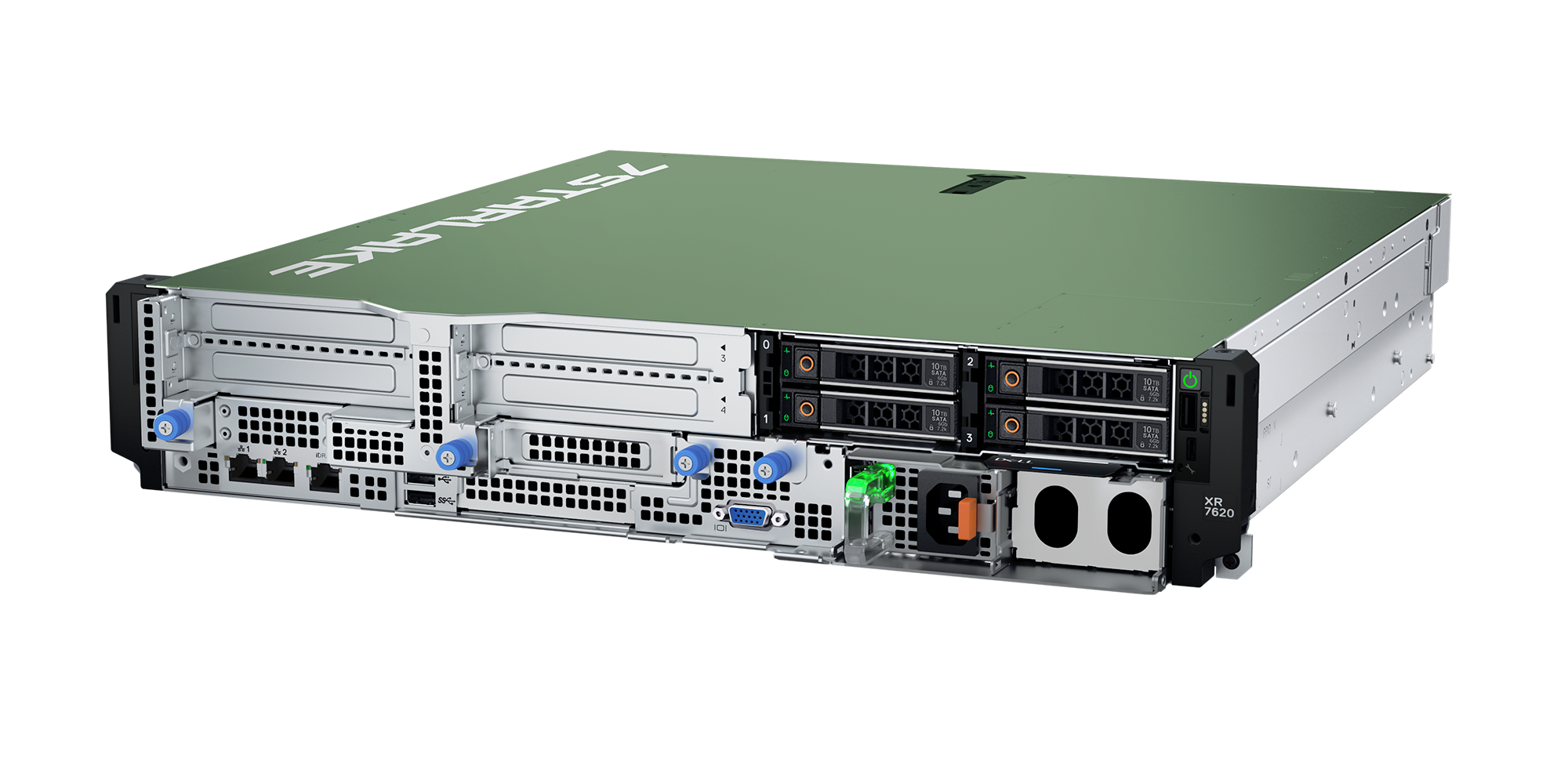
- Dual Intel® 4/5th XEON® SP Processor Silver, Gold
- Up to 7 PCIe slots - Full - Height, Half-Lenth and low profile,◎4x Single-width Full-Height/Half-Length (PCIe x 16) 75W, ◎2x Double-width Full-Height/Full-Length (PCIe x 16) 350W, ◎1x Low Profile 75W
- 4 x 2.5" Swappable SATA SSD up to (RAID 0,1,5,10)
- 1 x USB 2.0, 1 x iDAC Direct (Micro-AB USB 2.0), 1 x iDRAC dedicated, 1 x USB 3.0, 1 x Serial port (optional on slot 5), 1 x VGA
- MIL-STD-810 Vibration Method 514.6 : ◎Acceleration : 5.0 Grms
- MIL-STD-810 Vibration Method 514.6 : ◎ PSD : 0.01257 g2/Hz
- MIL-STD-810 Shock Method 516.6 : ◎ Wave From : Half Shine Wave
- MIL-STD-810 Shock Method 516.6 : ◎ Acceleration : 20G
- MIL-STD-810 Temperature Method 501.5 502.5 : ◎ Operating Temp High 55°C
- MIL-STD-810 Temperature Method 501.5 502.5 : ◎ Operating Temp Low -30°C
7SL-R760

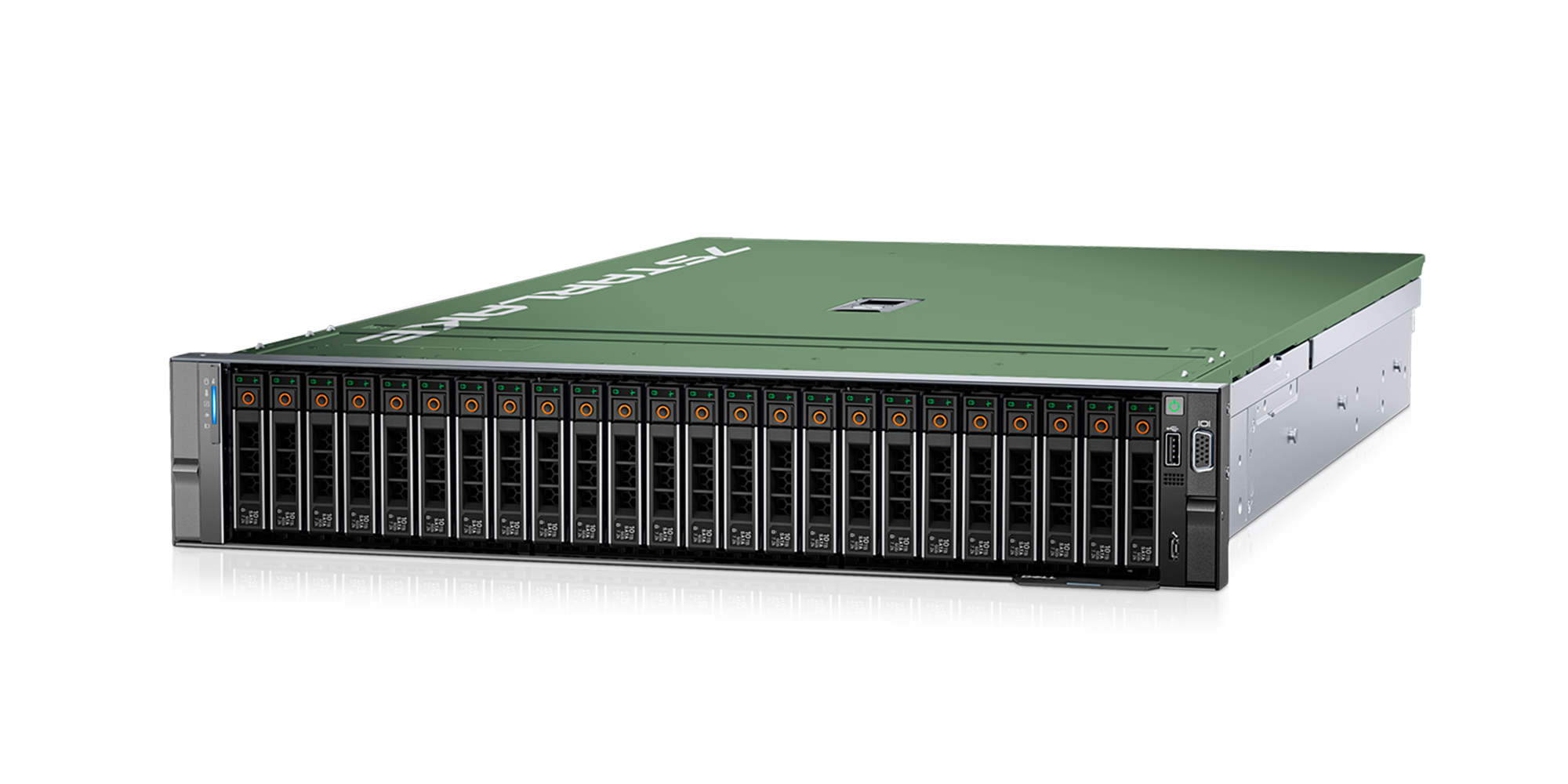
- Dual Intel® 4/5th XEON® SP Processor Silver, Gold, Platinum
- Up to 8 PCIe slots: ◎4x 16 Gen4/Gen5 Full-Height/Full Length, ◎2 x8/x16 Gen4/Gen5 Full-Height/Full-Length, ◎2x 16 LP Gen4 Low profile, Half Length
- 1 x USB 2.0, 1 x iDRAC Direct (Micro-AB USB 2.0), 1 x iDRAC dedicated, 1x USB 3.0, 1 x Serial port(optional), 1x VGA
- MIL-STD-810 Vibration Method 514.6 : ◎Acceleration : 5.0 Grms
- MIL-STD-810 Vibration Method 514.6 : ◎ PSD : 0.01257 g2/Hz
- MIL-STD-810 Shock Method 516.6 : ◎Wave Form : Half Shine Wave
- MIL-STD-810 Shock Method 516.6 : ◎Acceleration : 20G
- MIL-STD-810 Temperature Method 501.5 502.5 : ◎Operating Temp. High 55°C
- MIL-STD-810 Temperature Method 501.5 502.5 : ◎Operating Temp. Low -30°C
This was specially produced for a major military prime contractor and was designed to fit a new style of console.
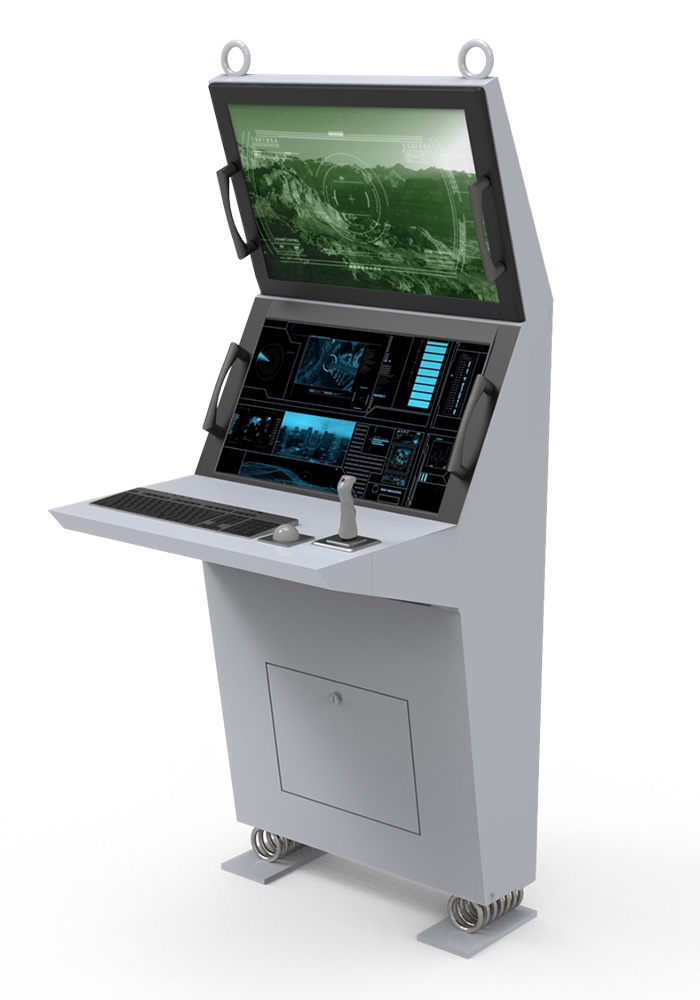
This Military Rack is suitable for IT equipment such as routers, switches, storage and communication devices. Typical applications are in military, security, and broadcast, where maximum protection is needed
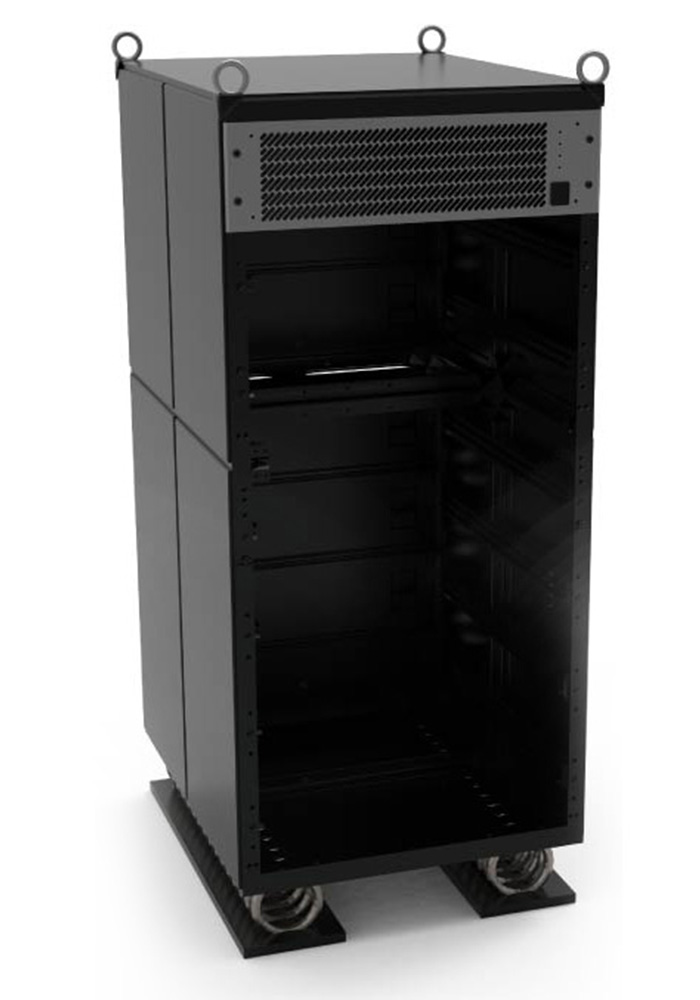
|










